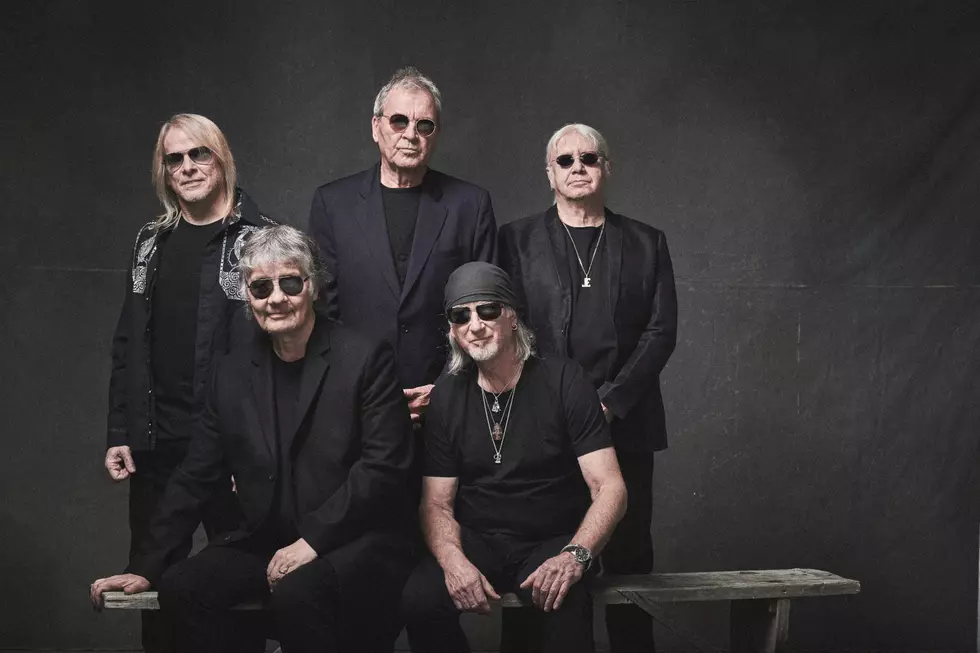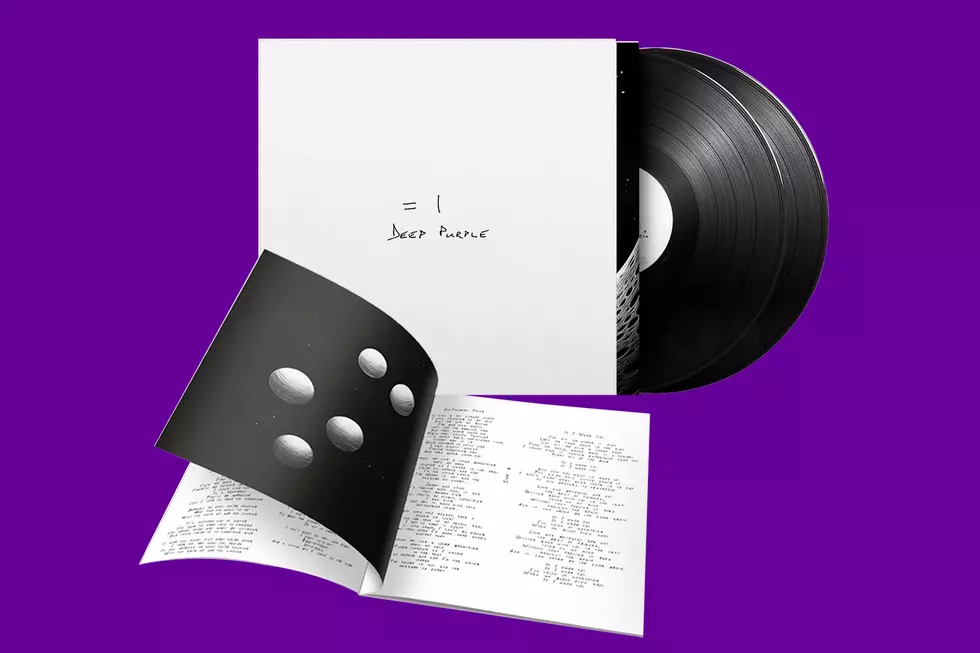
Ian Paice Says ‘Whoosh!’ Might Not Be Deep Purple’s Last Record: Exclusive Interview
Deep Purple have been leaving a trail of breadcrumbs for the past several years that suggest they could be winding down. The tour for their 2017 album Infinite, for instance, was memorably dubbed "The Long Goodbye."
Band members were initially coy when asked if they were planning to split after more than five decades together. As things progressed, however, Deep Purple began to address the topic more specifically.
Bassist Roger Glover later said that focus should be put on the “long” part of the title: “All we’re doing is putting our fans on notice that we're in our 70s now.” Glover admitted that drummer Ian Paice's mini-stroke in 2016 served as a “wake-up call,” but that he was still “dreading” the scenario of life without the group.
Vocalist Ian Gillan was more direct while quashing the idea of a reunion with former guitarist Ritchie Blackmore. He said there were no “nasty feelings” remaining between the two camps, “but I think it’s too late. We’re thinking about the end now.”
Then, in early 2019, Deep Purple revealed that they were working on a new album in Nashville – the third in a row with producer Bob Ezrin behind the console.
Gillan revealed that he had rented an Airbnb cottage on the Cumberland River, only to find that his bandmates were also staying in town. "This was a shock," he admitted, "as we are famous for our lack of planning and we all wondered what had drawn us together in this place and time.”
They ended up in the studio, this time with a specific purpose, according to advance media materials: “Deep Purple is putting the Deep back in Purple.” Always one to push the envelope with acts he works with, Ezrin encouraged everyone to really indulge themselves creatively.
Watch Deep Purple's Video for 'Man Alive'
Deep Purple's more recent studio productivity can be credited to moves like that one, Paice says. "Since we’ve been working with Bob, since 2012, we actually like being back in the studio again,” Paice tells UCR in a new interview. “Before that, I think for about 20 years, nobody really did like going into the studio. It was like a labor of work. Whereas everything else, you do it as a labor of love. But Bob made it fun. He made it quick; he made it efficient. He made it good.”
Perhaps most importantly, Ezrin has given the band something to look forward to with each album, instead of a moment that they would traditionally dread. Deep Purple's excitement through the process comes through once again on Whoosh!, their 21st studio album. The songs are peppered with long instrumental sections, revealing just how much they still enjoy playing together.
“It’s about having fun. There’s enough crap out there messing our lives up," Paice says. "Music is one of the things that should give us pleasure. It should be fun, because when you start playing as a kid, you start playing for fun. You don’t ever think about it being your career or being your livelihood. You find a bunch of other kids and you have fun.
“Now, hopefully, if you go through a long career like I’ve had, it can still be fun," Paice adds. "There’s no reason why that should change. Okay, it gets a little more serious. You know, you have to treat it with a lot more respect. But it’s still fun.”
These jams ultimately lead to the songs fans hear on each Deep Purple studio release, but Paice admits that a bit of creative tug of war still happens. Each track starts as pieces of music that either will germinate fully into completed works, or there will be pushback which turns to further discussion and a change of course.
“Ian will say, ‘I cannot make that into a song. There’s no way I can put a song formula to it,'" Paice admits. "Then we have to stop and rethink. We either say, ‘Well, it’s a nice instrumental bit,’ and we try and put it somewhere else, or we chuck it away and come up with something else."
Listen to Deep Purple Perform 'Drop the Weapon'
Though composed prior to the pandemic, Whoosh! has a thematic feel that's appropriate to the current times. “Drop the Weapon,” for instance, addresses the ongoing issue of gun violence head on.
“Flower power was a fantastic idea, but unfortunately only in theory. In a society in which everyone has nothing but love and peace in their hearts, there really is no need for weapons. But not all people are exclusively pure and good,” Gillan told RedaktionsNetzwerk Deutschland recently. "It is with horror that I hear of all these young people who are dying by knife force on the streets of London and elsewhere. Then it's about gang crime, drugs, some kind of turf. Someone should put an arm around these kids and say, 'Don't even pick up the gun.'"
Whoosh! draws to a close with an update on “And the Address,” the psychedelic instrumental which originally opened their 1968 debut. The session proved tricky for Paice, the only member of the current lineup who appeared on Shades of Deep Purple.
“It was probably the most difficult track to do on the record, because I have a template in my head about what it was,” Paice admits. “With all of the other stuff, it’s totally new music. I have no reference point to it. For the first couple of takes, I was trying to recreate what it was in a slightly more updated fashion. I couldn’t do it.”
Working initially with a click track, Paice quickly found that he needed to tackle the song in an old-school fashion. They ditched the click. “The tempos move around a little bit – like all old recordings,” he says with a laugh. “You know, so long as it doesn’t race away, it’s okay! That’s how we solved that problem. Is it better than the original ‘And the Address’? I don’t know; I have my doubts. I think it’s different.”
Listen to Deep Purple Perform 'And the Address'
The revised take on “And the Address” was also Bob Ezrin’s suggestion. He saw it as a way to bring things to a reflective end. The first track on their debut album would be the same song that would end what was envisioned as the final entry in the Deep Purple catalog.
“There was every chance when we went in to start recording the Whoosh! album that it would probably be the last record,” Paice explains. “His idea was to do a musical full circle, to take the first track off the first record and then end it with the last track on what would have been, in our minds, probably the last record."
Then the pandemic created the potential for another chapter in the Deep Purple story.
“It might not be the last record,” Paice says now, with a chuckle. “We’ve got all of this dead time. We know we can’t do any concerts until sometime next year. Now, 10 or 11 months, is a long time for musicians to sit around doing nothing when they could do something.
"So, it wouldn’t surprise me – and I know there’s little mutterings going on – that we might get together towards the end of this year and see if we can write some more stuff," Paice adds. "If we can, if we’ve got some ideas that we like, then there’s no reason at all why there shouldn’t be another record.”
See Deep Purple Among the Top 50 Heavy Metal Albums
Jon Lord and Ian Paice Were in One of Rock’s Forgotten Supergroups
More From Ultimate Classic Rock









